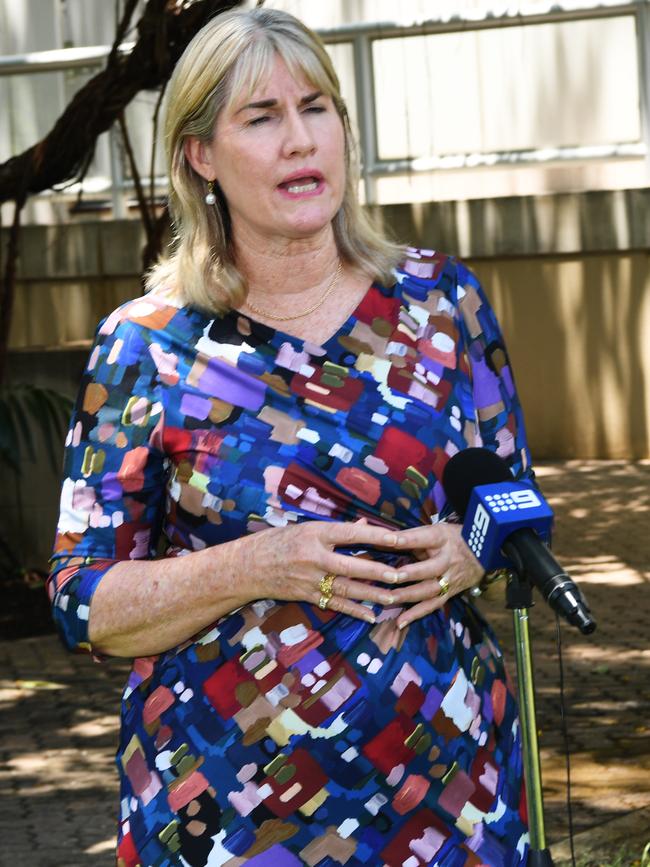NT govt’s urgent planning law changes ‘unusual’ for specifiying validity of one decision academic says
EMERGENCY planning law changes introduced by the NT government to firm up its chances in an ongoing Supreme Court challenge is “unusual”, a Territory law expert has said

Politics
Don't miss out on the headlines from Politics. Followed categories will be added to My News.
EMERGENCY planning law changes introduced by the NT government to firm up its chances in an ongoing Supreme Court challenge is “unusual”, a Territory law expert has said.
Part of the urgent amendments also doesn’t “specifically align” with the planning act’s goal of respecting and encouraging “fair and open decision making”.
Infrastructure and Planning Minister Eva Lawler on Tuesday introduced changes to the recently-updated Planning Act as a matter of urgency to “protect the validity of future decisions by a Minister in relation to planning scheme amendments”.
MORE TOP NEWS
Parliament protest forces Attorney-General to extend funding for women’s prison program
Health organisations show big interest in delivering COVID-19 vaccine as part of NT-wide rollout

The laws also specifically impact the Parklands development at Blake St, The Gardens, which has been proposed by the Makrylos Group.
The developers are challenging Ms Lawler’s rejection of their rezoning application in the Supreme Court and legal counsel for the Makrylos Group have said they plan to look into whether the new laws are an abuse of a Minister’s power and whether or not further legal action will need to be taken
Charles Darwin University law lecturer Ros Vickers said it was “unusual” that the government had specifically referred to the validity of the decision made about the Blake St development in the proposed law changes.
Ms Vickers said a government changing a law in order to settle a dispute had been done before, referencing the move by the NT government during the Martin-Henderson era to enact a law that allowed the MacArthur River Mine to go ahead, superseding the outcome of a court challenge.

She said the changes, which will allow the Minister to make a decision without providing reasons, did not align with an objective of the Act that refers to “fair and open decision making”.
Ms Lawler defended the law changes, saying it was necessary to ensure the decision of a “democratically-elected minister” could not be questioned and overturned when due process had been followed.
HOT NEW DEAL: $1 for 28 days subscription offer
“What this amendment does is make sure that when a minister makes a decision, that that decision holds,” she said.
Ms Vickers said the amendments did not appear to take away people’s rights to natural justice and procedural fairness as decisions can still be reviewed in the courts.



